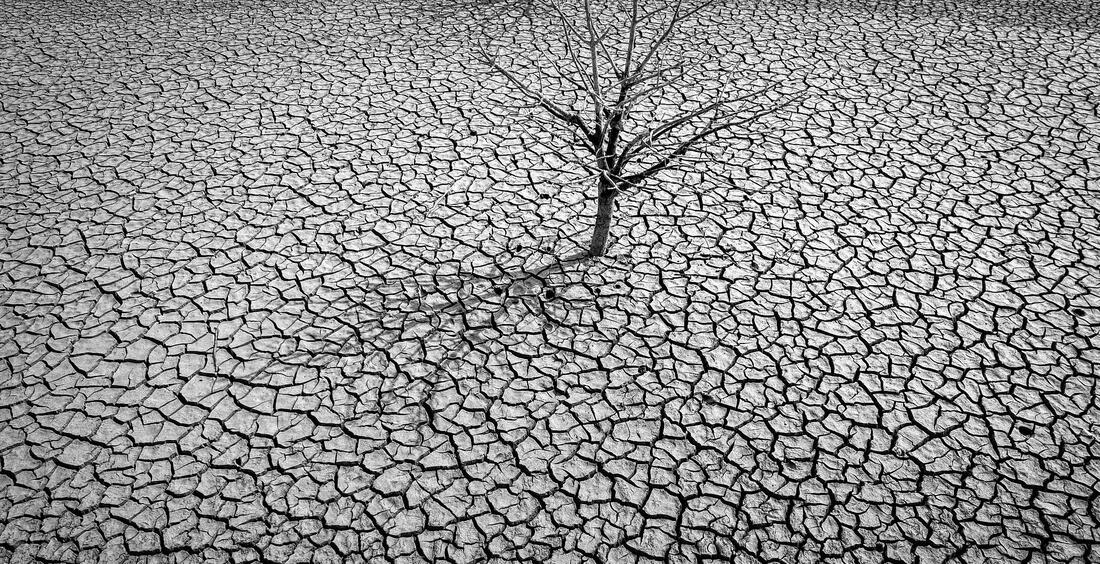What to do if someone opens a credit card in your name
0 Comments
Harv's Corner
QUANTUM LEAP IN WARMING |
| President Biden's administration is strengthening the alliances in East Asia and Oceania to deter aggressive behavior from countries like North Korea and China. Building a powerful coalition of countries ensures mutual safety and security in the region and is a crucial step toward maintaining peace and stability. Q! Is Biden doing the right thing, or is this just a waste of time? |
Japan is an ally the U.S. can count on
A state visit by the prime minister reflects the tight ties between Tokyo and Washington.
Amid growing challenges in a turbulent world, a true friend to America arrives in Washington on Wednesday: Japanese Prime Minister Fumio Kishida.
He'll take part in a leader-to-leader meeting with President Joe Biden, a trilateral summit with Biden and Filipino President Ferdinand Marcos Jr., and a state dinner, as well as address a joint session of Congress. Kishida will also meet with business leaders and everyday Americans to try to impress upon them the multiple, mutual benefits of the U.S.-Japan alliance.
The advantages for this country are clear: An indispensable, increasingly capable ally in the Indo-Pacific region that can be counted on as a bulwark against a rising and increasingly reckless China — particularly its claims to Taiwan — as well as a provocative North Korea, which not only directly threatens South Korea but Japan and, by extension, the U.S.
Kishida, building on the bold constitutional reforms of former Prime Minister Shinzo Abe, continues to transform Japan's defense posture into one willing to engage in "collective self-defense" — a geopolitical boost to likeminded democracies in the region.
Accordingly, the likely key summit deliverables include modernizing military command structures to improve interoperability, potential co-production of weapons systems and allowing U.S. naval vessels to be maintained and repaired in Japan so they can stay closer to where they're needed most — in and around the South and East China Seas to counter China's increasingly aggressive maritime claims and conduct.
There's also a possibility of Japan furthering its alliance with the U.S. by taking part in other multilateral defense partnerships, potentially including the grouping of Australia, the U.K. and the U.S. known as AUKUS.
And the alliance may not just be blossoming in Asia and North America, but potentially in space, as the leaders are likely to commit to Japan taking part in NASA's Artemis moon program.
"The Biden administration has carried forward a lot of the previous Trump administration's focus on Asian security, but what I think they've done particularly well is to corral allies to join the United States in taking a common position," Raymond Kuo, a senior political scientist at the Rand Corporation, told an editorial writer. Kuo, who's based in Minneapolis, noted the tighter ties between Washington, Tokyo and Seoul, and said that Japan is "probably our closest allied state other than the U.K."
The transition from Abe to Kishida is resulting in an even closer strategic security alignment with the United States, Kuo said. "They're focusing on a certain degree of power projection and offsetting Chinese advantages in a way that will help alleviate the burden for U.S. forces in the region."
As with any alliance, there is friction, although most of it is domestic. Pressure points include Biden's resistance to allow a Japanese firm, Nippon Steel, to purchase U.S. Steel. But most of these issues are manageable, especially given the growing stakes of geopolitical conflict.
And as with any democratically chosen leader, Kishida realizes there could be another eventual transition in Tokyo, especially since some members of the ruling party are caught up in a significant bribery scandal.
Biden, of course, has his own domestic political challenges and is in a tight re-election race against the presumptive Republican nominee, former President Donald Trump. Still, it's important that the alliance endure and even grow regardless of who is in office in either capital.
For now, Kuo said, the Biden-Kishida meeting "is further cementing their relationship, and I think pushing forward in terms of all those economic and security areas."
That's good news for America: Global conflict is always best met multilaterally with reliable allies.
Harv's Corner
| Not many people think about NATO (North Atlantic Treaty Organization). Some are suggesting that it is "obsolete" and not functioning properly, and that many participating nations have not paid for their participation. This raises the question of why we would want to lead an organization like that. However, it's really important to consider the facts and come to our own conclusions. |
Trump’s wrong about need for NATO
The transatlantic alliance, formed 75 years ago this week, is more essential than ever.
To mark the 75th anniversary of the North Atlantic Treaty Organization this week, a statue of former President Harry Truman is being installed at the U.S. ambassador to NATO's residence in Brussels. It's a fitting tribute.
Truman was commander in chief when the U.S. became a founding member of NATO, and the transatlantic alliance shares many of the traits that defined him, including a resolute, responsible commitment to collective defense.
Defense of territory, to be sure. But also something even more profound, as defined by Dwight Eisenhower, the president who succeeded Truman.
"We do not keep security establishments merely to defend property or territory or rights abroad or at sea," Eisenhower said in 1954. "We keep the security forces to defend a way of life."
The support from successive presidents, one a Democrat and the other Republican, had endured on a bipartisan basis through subsequent generations.
Until, that is, the presidency of Donald Trump, who as a candidate called the alliance "obsolete." More recently, at a campaign rally, Trump told the crowd that "one of the presidents of a big [NATO] country stood up and said, 'Well, sir, if we don't pay and we're attacked by Russia, will you protect us?' I said, 'You didn't pay? You're delinquent? ... No, I would not protect you. In fact, I would encourage them to do whatever the hell they want.'"
A statement like that undermines NATO's deterrence effect "by creating a lot of uncertainty in the minds of our allies and maybe giving false hopes to a country like Russia," Thomas Hanson, diplomat-in-residence at the University of Minnesota Duluth, told an editorial writer.
Hanson, a former Foreign Service officer and former director for NATO and European Affairs at the Atlantic Council, said that NATO was "essential during the Cold War when there were only 12 members as a defensive alliance holding off the Soviet Union during the period of containment, and it's as important as ever because with the end of the Cold War it redefined itself and began to take on missions beyond the original intent."
Including in Afghanistan in the wake of 9/11, when the U.S. became the first and only NATO nation to invoke the collective-defense mechanism known as Article 5. America's allies were there for us then, and we should be there for them in the future.
That's the unambiguous intent of President Joe Biden, who has correctly identified the fundamental struggle of this era as one of democracy vs. autocracy.
NATO is an alliance of democracies and is indispensable in keeping them that way. Meanwhile, an ad hoc alliance of autocracies has formed between Russia, China, Iran and North Korea.
But none of those countries — together, let alone individually — have the force multiplier of the world's strongest alliance, NATO, which was significantly geographically, militarily and politically boosted last year with the addition of the 31st member, Finland, and just last month when the 32nd nation, Sweden, was added.
Trump's concern over the number of countries investing the targeted 2% of GDP in defense is legitimate. His way of pressing for it, however, is not, since it potentially alienates allies and emboldens adversaries.
The good news is that the Pentagon recently said that this year 18 nations will meet or exceed that mark, up from just three when then-President Barack Obama — another stalwart supporter of NATO — led an alliance-wide "Defense Investment Pledge" in 2014. Since then, there has been "an unprecedented" rise of $600 billion in defense spending, according to NATO Secretary-General Jens Stoltenberg.
History — and common sense — shows that retreating from collective defense won't make America safer. And history shows that this is not just an international issue, but a domestic and indeed statewide concern.
Minnesotans in all branches of the armed forces — including the Minnesota National Guard, which has taken part in major NATO training exercises — may be impacted.
The NATO alliance is designed to avoid direct conflict, and to date the deterrent effect has worked, in part because of bipartisan U.S. leadership.
Hanson, paraphrasing Biden administration officials, said the president has built on former President Ronald Reagan's belief in "peace through strength" and broadened it to "peace through American and allied strength."
That's an ethos that should last another 75 years — and beyond.
Harv's Corner
| Here's something we all know. It's hot! Records were broken all over the country last year. This year it's starting even earlier. This appears to be a blip in a larger pattern of Global Warming but is says the world is edging closer. THINK . . . who is most likely to address this situation - Biden or Trump. |
Hot just keeps getting hotter
Study also finds since 1979, heat waves last longer, hurt more people.
By SETH BORENSTEIN Associated Press
Long hot summers affect those who work outside more. This photo from last summer shows a security guard in Beijing wearing an electric fan on his neck.
Climate change is making giant heat waves crawl slower across the globe and they are baking more people for a longer time with higher temperatures over larger areas, a new study finds.
Since 1979, global heat waves are moving 20% more slowly — meaning more people stay hot longer — and they are happening 67% more often, according to a study in Friday's Science Advances. The study found the highest temperatures in the heat waves are warmer than 40 years ago.
Studies have shown heat waves worsening before, but this one is more comprehensive and concentrates heavily on not just temperature and area, but how long the high heat lasts and how it travels across continents, said study co-authors and climate scientists Wei Zhang of Utah State University and Gabriel Lau of Princeton University.
From 1979 to 1983, global heat waves would last eight days on average, but by 2016 to 2020 that was up to 12 days, the study said.
Eurasia was especially hit hard with longer lasting heat waves, and heat waves slowed down most in Africa, while North America and Australia saw the biggest increases in overall magnitude, which measures temperature and area.
"This paper sends a clear warning that climate change makes heat waves yet more dangerous in more ways than one," said Lawrence Berkeley National Lab climate scientist Michael Wehner, who wasn't part of the research.
Just like in an oven, the longer the heat lasts, the more something cooks. In this case it's people, the co-authors said.
"Those heat waves are traveling slower and so that basically means that ... there's a heat wave sitting there and those heat waves could stay longer in the region," Zhang said. "And the adverse impacts on our human society would be huge and increasing over the years."
The team conducted computer simulations showing this change was due to heat-trapping emissions that come from the burning of coal, oil and natural gas. The study found climate change's fingerprint by simulating a world without greenhouse gas emissions and concluding it could not produce the worsening heat waves observed in the last 45 years.
The study also looks at the changes in weather patterns that propagate heat waves. Atmospheric waves that move weather systems along, such as the jet stream, are weakening, so they are not moving heat waves along as quickly — west to east in most but not all continents, Zhang said.
Several outside scientists praised the big picture way Zhang and colleagues examined heat waves.
This shows "how heat waves evolve in three dimensions and move regionally and across continents rather than looking at temperatures at individual locations," said Kathy Jacobs, a University of Arizona climate scientist.
Archives
May 2024
April 2024
March 2024
February 2024
January 2024







 RSS Feed
RSS Feed